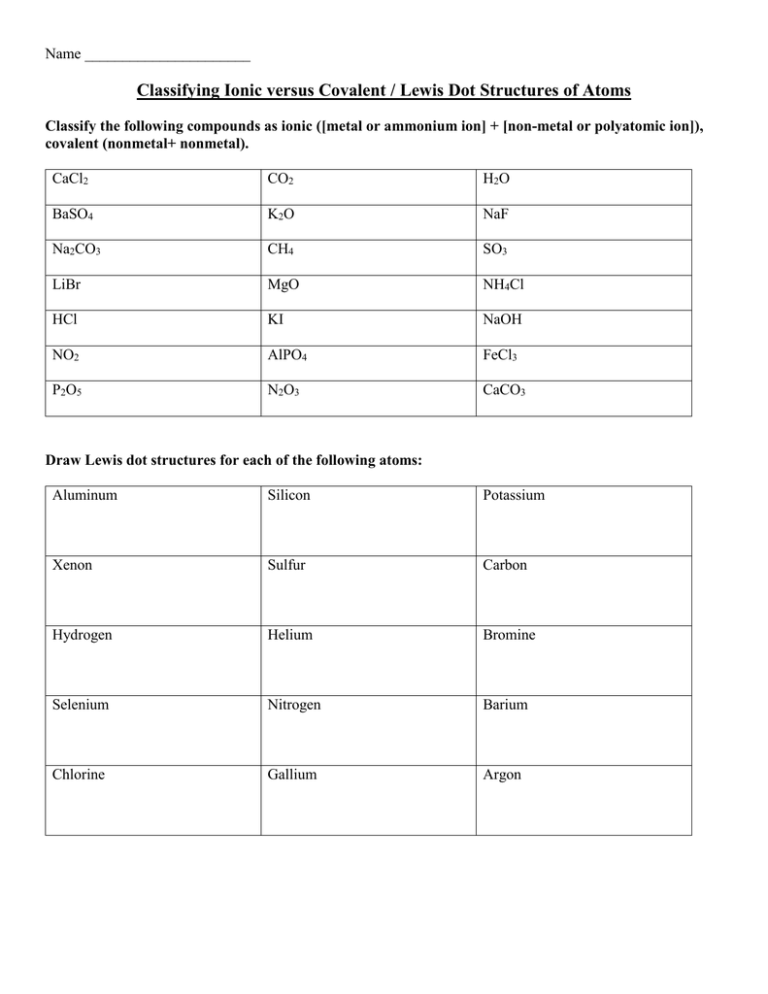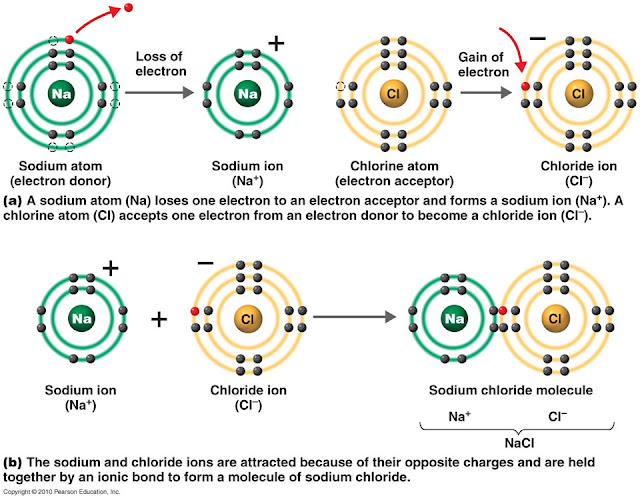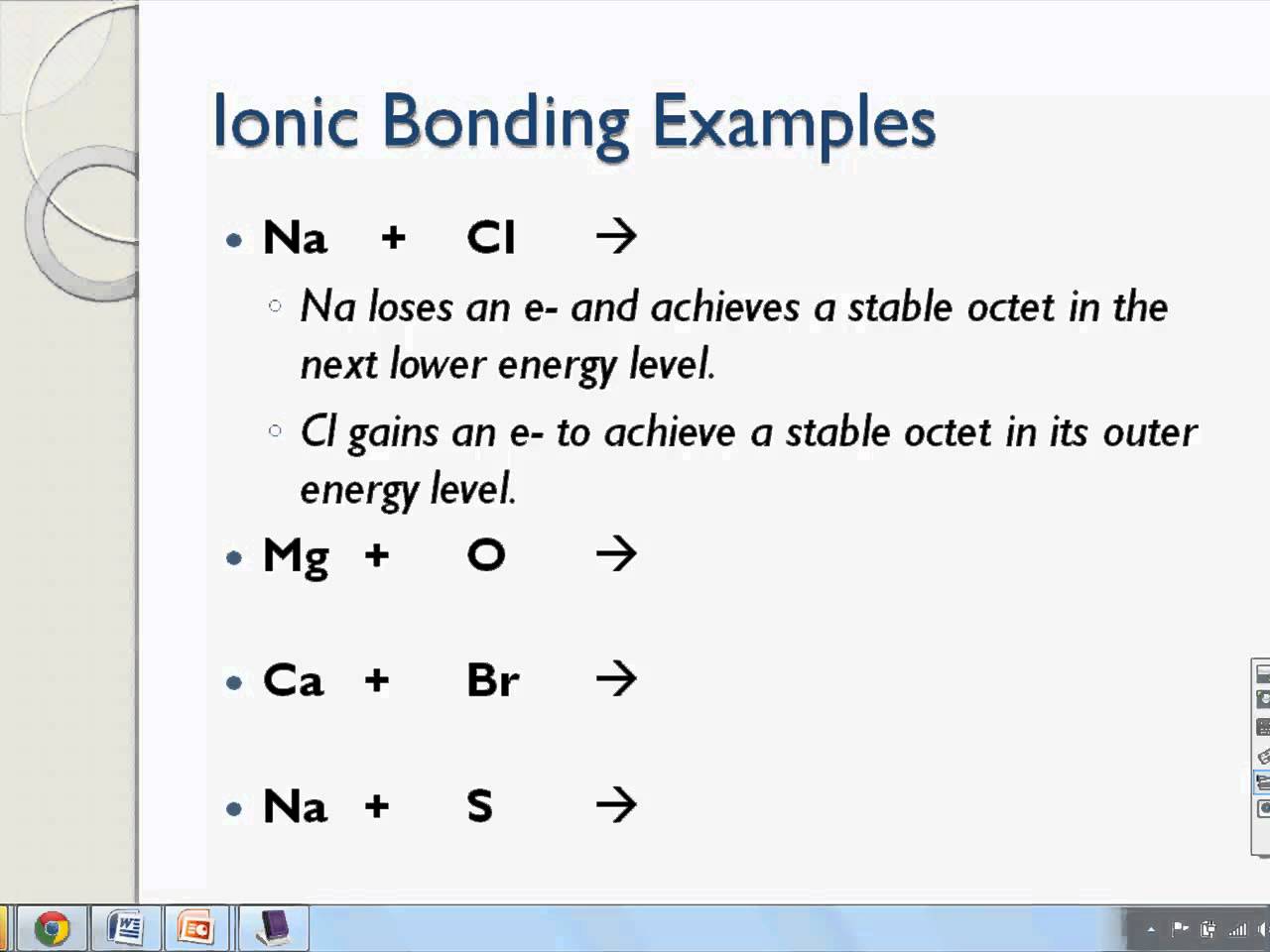Ionic Bonding Lewis Dot Structure Worksheet
Ionic Bonding Lewis Dot Structure Worksheet - Use lewis dot structures to show the covalent bonding in the following pairs of elements. Valence electrons play a fundamental role in chemical bonding. Sometimes bonding involves the transfer of one or more electrons from one. Model 1 substances are called ionic compounds and model 2 substances are called covalent molecules. An ionic bond is an attraction of a cation for an anion resulting from the transfer of electrons. Show the transfer of electrons using arrows. Write a simple rule that will allow you. Once you have determined the. Then, write the chemical formula and. Use lewis dot structures to show the ionic bonding in the following pairs of elements.
An ionic bond is an attraction of a cation for an anion resulting from the transfer of electrons. Sometimes bonding involves the transfer of one or more electrons from one. Once you have determined the. Show the transfer of electrons using arrows. Model 1 substances are called ionic compounds and model 2 substances are called covalent molecules. Then, write the chemical formula and. For each of the following elements, draw lewis dot diagrams and arrows to show the transfer of electrons. Write a simple rule that will allow you. Use lewis dot structures to show the covalent bonding in the following pairs of elements. Use lewis dot structures to show the ionic bonding in the following pairs of elements.
Once you have determined the. Use lewis dot structures to show the covalent bonding in the following pairs of elements. Valence electrons play a fundamental role in chemical bonding. Write a simple rule that will allow you. For each of the following elements, draw lewis dot diagrams and arrows to show the transfer of electrons. An ionic bond is an attraction of a cation for an anion resulting from the transfer of electrons. Use lewis dot structures to show the ionic bonding in the following pairs of elements. Model 1 substances are called ionic compounds and model 2 substances are called covalent molecules. Then, write the chemical formula and. Sometimes bonding involves the transfer of one or more electrons from one.
Lewis Dot Structures and Ionic Bonding Practice
Model 1 substances are called ionic compounds and model 2 substances are called covalent molecules. Write a simple rule that will allow you. Sometimes bonding involves the transfer of one or more electrons from one. Show the transfer of electrons using arrows. Use lewis dot structures to show the ionic bonding in the following pairs of elements.
savvychemist Ionic Bonding (2) Dot and cross diagrams/Lewis structures
Write a simple rule that will allow you. Once you have determined the. Then, write the chemical formula and. Use lewis dot structures to show the covalent bonding in the following pairs of elements. Model 1 substances are called ionic compounds and model 2 substances are called covalent molecules.
Lewis Structure Questions And Answers Lewis Structures Works
An ionic bond is an attraction of a cation for an anion resulting from the transfer of electrons. For each of the following elements, draw lewis dot diagrams and arrows to show the transfer of electrons. Then, write the chemical formula and. Sometimes bonding involves the transfer of one or more electrons from one. Show the transfer of electrons using.
Chemical Bonds and Lewis Dot Structures Worksheet Answers Chemistry
Show the transfer of electrons using arrows. Then, write the chemical formula and. Sometimes bonding involves the transfer of one or more electrons from one. Valence electrons play a fundamental role in chemical bonding. For each of the following elements, draw lewis dot diagrams and arrows to show the transfer of electrons.
Free Printable Lewis Dot Structure Worksheets
Use lewis dot structures to show the covalent bonding in the following pairs of elements. Valence electrons play a fundamental role in chemical bonding. For each of the following elements, draw lewis dot diagrams and arrows to show the transfer of electrons. Sometimes bonding involves the transfer of one or more electrons from one. Show the transfer of electrons using.
Lewis Dot Diagram For Ionic Compounds
Use lewis dot structures to show the ionic bonding in the following pairs of elements. Once you have determined the. Then, write the chemical formula and. Use lewis dot structures to show the covalent bonding in the following pairs of elements. Model 1 substances are called ionic compounds and model 2 substances are called covalent molecules.
How To Draw Lewis Diagram For Ionic Compounds
Show the transfer of electrons using arrows. Once you have determined the. Use lewis dot structures to show the ionic bonding in the following pairs of elements. Then, write the chemical formula and. Sometimes bonding involves the transfer of one or more electrons from one.
Ionic Bonding Lewis Dot Structure Worksheet
Then, write the chemical formula and. Show the transfer of electrons using arrows. Write a simple rule that will allow you. Once you have determined the. For each of the following elements, draw lewis dot diagrams and arrows to show the transfer of electrons.
MOLECULAR STRUCTURE Drawing Lewis Dot Diagrams for Atoms and for Ionic
Sometimes bonding involves the transfer of one or more electrons from one. Once you have determined the. Use lewis dot structures to show the covalent bonding in the following pairs of elements. Write a simple rule that will allow you. Then, write the chemical formula and.
Electron Dot Diagram And Lewis Structure Worksheet Electron
Write a simple rule that will allow you. Use lewis dot structures to show the ionic bonding in the following pairs of elements. Use lewis dot structures to show the covalent bonding in the following pairs of elements. For each of the following elements, draw lewis dot diagrams and arrows to show the transfer of electrons. Show the transfer of.
Sometimes Bonding Involves The Transfer Of One Or More Electrons From One.
Valence electrons play a fundamental role in chemical bonding. Write a simple rule that will allow you. Show the transfer of electrons using arrows. Model 1 substances are called ionic compounds and model 2 substances are called covalent molecules.
An Ionic Bond Is An Attraction Of A Cation For An Anion Resulting From The Transfer Of Electrons.
Use lewis dot structures to show the covalent bonding in the following pairs of elements. For each of the following elements, draw lewis dot diagrams and arrows to show the transfer of electrons. Then, write the chemical formula and. Use lewis dot structures to show the ionic bonding in the following pairs of elements.









